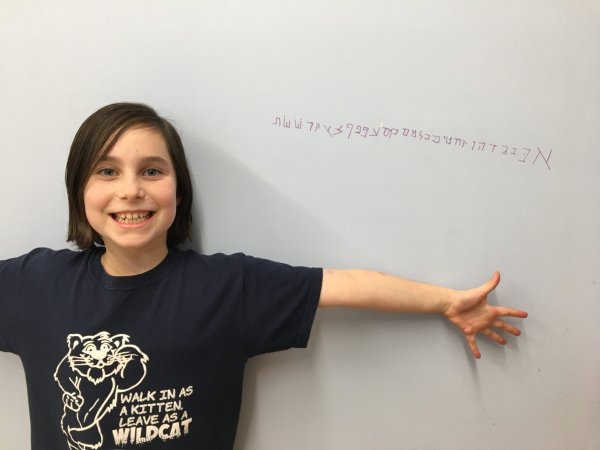
Why do we bother learning Hebrew here at Makom Community? Why is it important? How does Hebrew help us access the Jewish text and tradition that forms the foundation of our learning?
One answer, provided to me by one of the Garinim (preK and K kiddos), is that it’s about Tefilah: Prayer, Music, and Movement. We sing a lot of songs in Hebrew, so we need to learn Hebrew. That’s a great answer! Most synagogues in most places use siddurim (prayer books) at least in part in Hebrew. We hope that Hebrew literacy will help our learners feel comfortable jumping into an unfamiliar tefilah service if they can read the words in their siddur.
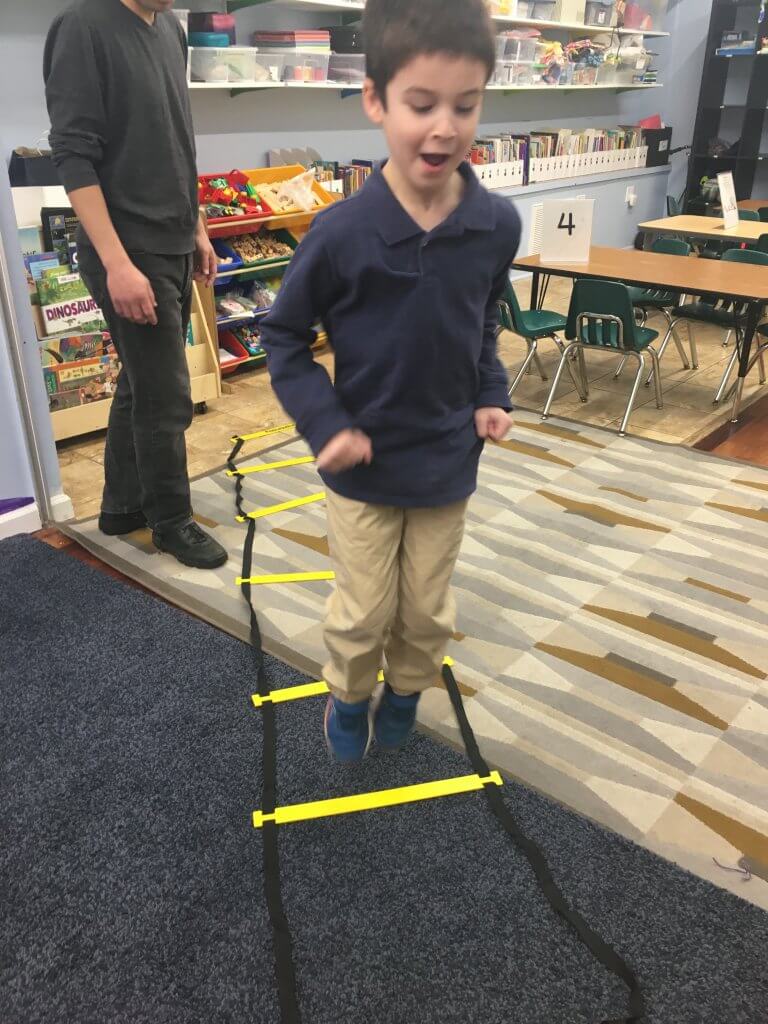
The other answer that we discussed this week is about text. A whole lot of Jewish text is written in Hebrew, and we think it’s important to be able to read and understand at least some of that Hebrew in order to fully access the text. Let me give you an example. Remember Migdal Bavel (the Tower of Babel)? People built a tower, God didn’t like it, shenanigans ensued.
Here’s one sentence of that text, four ways:
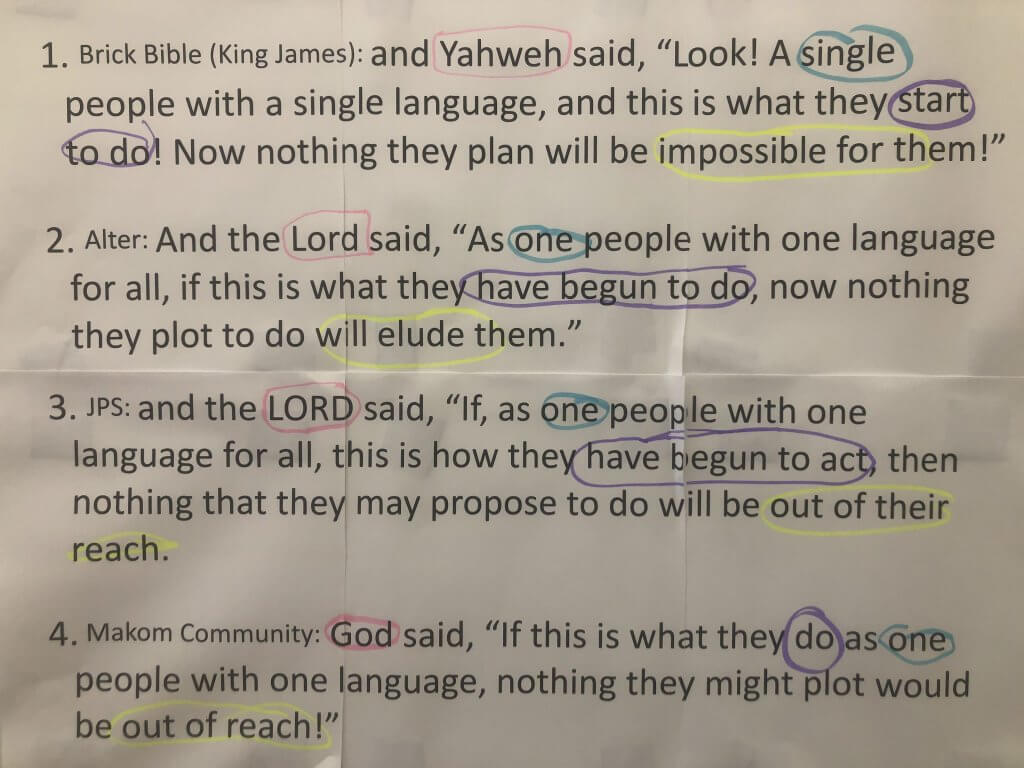
Each of these sentences started with someone looking at the same words in Hebrew and then making some translation choices. The first translation is from the Brick Bible, a graphic novel style book with Lego illustrations that uses the King James translation. The second translation is from Alter. The third is from JPS, the translation we teachers look at when we prep our lesson plans. The fourth one is from us, the version we write and present particularly to our younger kiddos. You’ll notice that there are some colorful markings in the picture above. Each color represents the same word in Hebrew as it appears in each of the translations. Do the translations all use the same words? How are the differences meaningful and impactful to our understanding of the text?
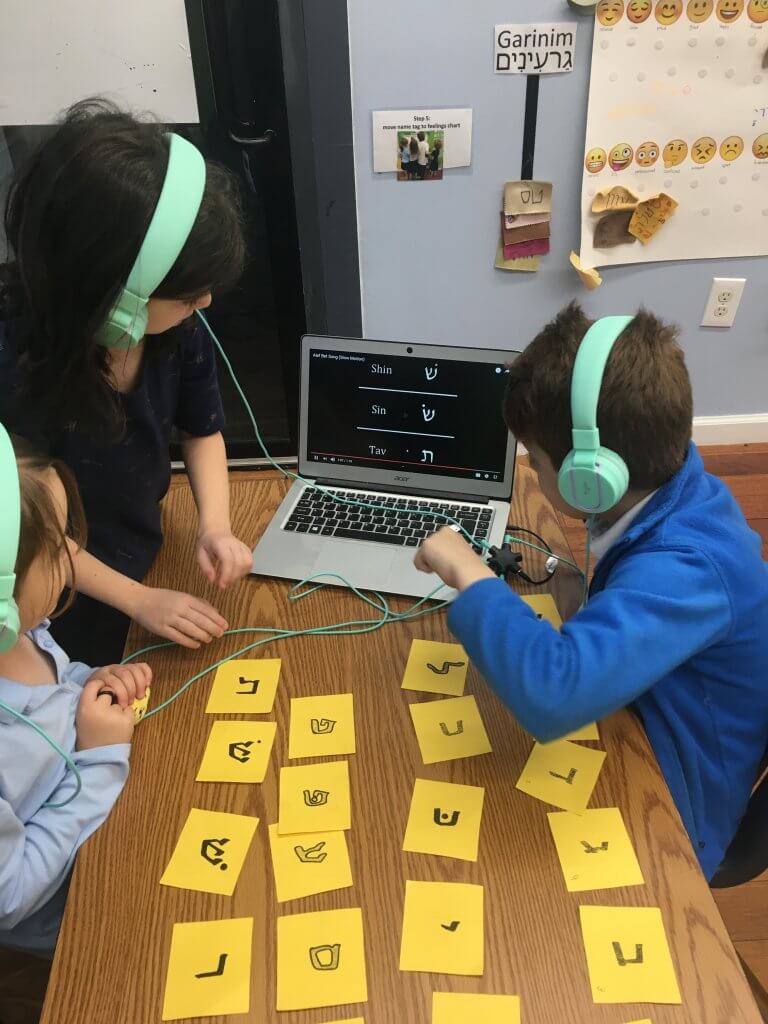
Take just the word in pink. When we talk about God at Makom Community, we almost always use the word “God”. But “Lord” has a bit of a different connotation, right? Maybe gives a sense of God as a ruler or a master over others. And “Yahweh” comes from the particular, unpronounceable God name, in Hebrew spelled yud hey vav hey. This name is used in different contexts from some of the other Hebrew names for God like Elohim or Shechinah. But if you, like our learners, are studying this text from the Makom Community translation, then you miss the information available in other translations. The original Hebrew, though, has all that information available, if we have the literacy to access it.
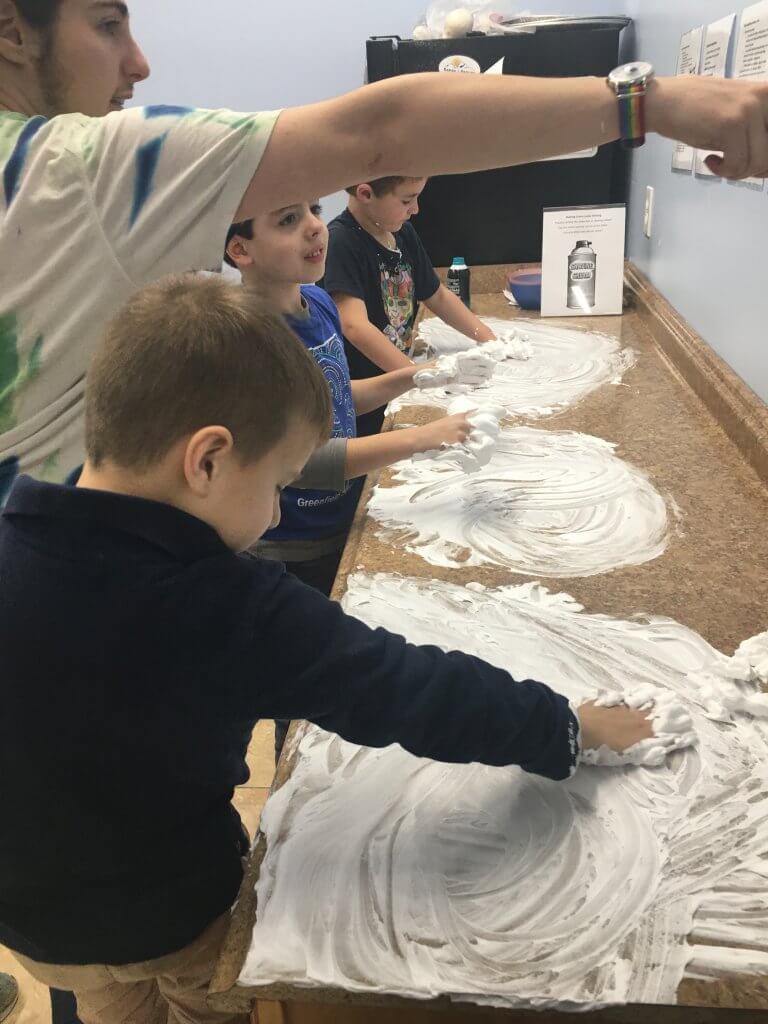
So that’s our case. Hebrew literacy gives us a fuller understanding of the text we’re digging into. And, if nothing else, it’s important to know your translators and their agendas because translating always involves some interpreting, and interpreting comes with a bias. To work on our Hebrew literacy this week, we spent two days practicing the aleph-bet with writing, shaving cream, singing, wikistix, a dice game, and an agility ladder. Stay tuned next week to hear about our shiny new unit!
